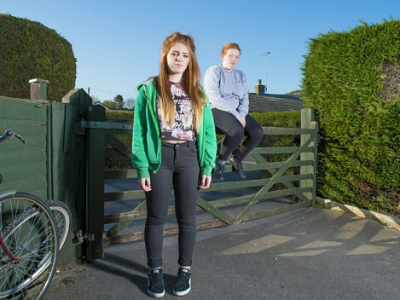
Some of the responses to the BBC documentary, Protecting Our Foster Kids, got me thinking a lot about my own story this week and whether I would have been brave enough to share it as a young person on national television, or brave enough to share it now as an adult working in child protection.
As a teenager I would probably have gone full steam ahead with the opportunity to do so. I was very passionate about the rights of children and young people in local authority care or involved with Child and Adolescent Mental Health Services. I wrote blogs via my own website (much to everyone’s horror) and took part in many participation events. As I grew up and enrolled at college I went on to run these workshops myself, sharing some of my own experiences in an attempt to challenge the stigma of being in care or experiencing mental ill health.
Committed to the role
Fast forward seven or eight years and I’m a social worker working in child protection, completely committed to, and passionate about, my role in working with children and their parents. I’m a firm believer in relationship-based and systemic practice and I work hard to empower families to make changes and navigate their way through traumatic life events, which sometimes involve their children moving into local authority care.
Self-disclosure
There is a wealth of views in terms of self-disclosure in social work: when and to what extent it is appropriate to do bring some of your own experiences into the mix. Firstly, I think we all as social workers have a duty to know, process and own our own experiences before we can look at developing supportive or therapeutic relationships with service users. I look at counselling training courses, some of which ask their students to engage in a number of therapy sessions themselves, and often wonder whether this should be transferred to social work courses too.
Secondly, I think that we have to observe a very fine line when considering self-disclosure. I joke with teenagers I work with about how I was a rebellious teenager once upon a time too, but I have never spoken about my experiences of being a looked after child with service users.
My aspirations were always to write a memoir and to share my story with others.I found Lisa Cherry’s book, The Brightest of Stars, so inspirational, yet I wonder what impact writing a memoir may have on me professionally should that information be used in a negative way, whether that be by families or other professionals.
Care leaver closet
Being a social worker has to some extent led me back into the care leaver closet. I am very aware of the need to protect myself by ensuring that my own personal information isn’t available to families via social media and so on. I use Twitter professionally and have often felt a sense of conflict when I have wanted to respond or take part in Twitter chats relating to care leavers and the importance of participation projects and service user contributions.
I am fiercely proud of my journey and I am in no way ashamed of it. It has shaped me into the person I am today who, on the whole, I am pretty happy with. I am “out” at work and openly chat to the team about my life. I’m in no way secretive in that context yet, there have been experiences I’ve had, primarily when a student, along the lines of ‘the social worker who was in care’ which I have struggled with: yes that’s a part of my identity but it doesn’t sum me up as a whole. I also have very clear views that the opportunities I am afforded should be the same as the opportunities afforded to any other social worker who works hard – I shouldn’t be any different because I was in care.
Fear and stigma
Coming out on a wider scale is scary and perhaps it would be safer to stay in the care leaver closet. But I want to write that memoir, I want to share my experiences about the good (and not so good) social workers and foster carers who have been a part of my life. And ultimately I want to challenge the very foundations of my fear – stigma.
I guess the easy solution would be change my Twitter handle and write anonymously, but that doesn’t sit quite right with me either – I feel that would be giving in to the fear and stigma. As Matt Haig writes in the opening chapter of Reasons to Stay Alive: “Words, just sometimes, can set you free”.


 Assistive technology and dementia: practice tips
Assistive technology and dementia: practice tips  A trauma-informed approach to social work: practice tips
A trauma-informed approach to social work: practice tips 




 Find out how to develop your emotional resilience with our free downloadable guide
Find out how to develop your emotional resilience with our free downloadable guide  Develop your social work career with Community Care’s Careers and Training Guide
Develop your social work career with Community Care’s Careers and Training Guide  ‘Dear Sajid Javid: please end the inappropriate detention of autistic people and those with learning disabilities’
‘Dear Sajid Javid: please end the inappropriate detention of autistic people and those with learning disabilities’ Ofsted calls for power to scrutinise children’s home groups
Ofsted calls for power to scrutinise children’s home groups Seven in eight commissioners paying below ‘minimum rate for home care’
Seven in eight commissioners paying below ‘minimum rate for home care’
 Facebook
Facebook X
X LinkedIn
LinkedIn Instagram
Instagram
Comments are closed.